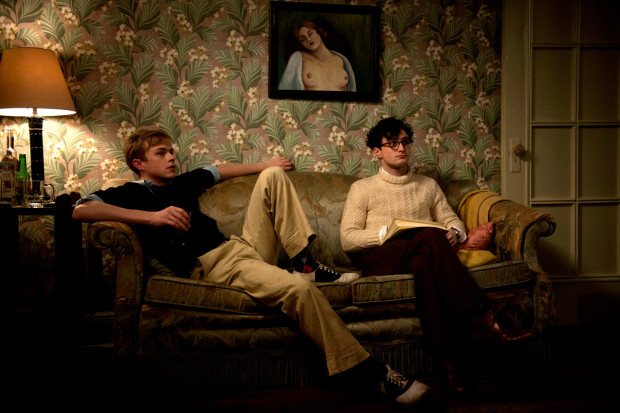Cert: 15
Running Time: 104 Mins
Starring: Daniel Radcliffe, Ben Foster, Jack Huston, Dane DeHaan, Michael C. Hall
Director: John Krokidas
John Krokidas’ directorial debut documents the meeting of the great beat poets, a literary revolution involving Allen Ginsberg (Daniel Radcliffe), William S.Burroughs (Ben Foster) and Jack Kerouac (Jack Huston), which is overshadowed by Lucien Carr’s (Dane DeHaan) murder of David Kammerer (Michael C. Hall).
It is important to remember that any film has the right to artistic license because it is a piece of art. The difficulty comes when that artistic license warps the representation of real people. For those who did not grow up with or were influenced by the Beat Generation, like myself, the film provides easy access to a point in recent history that is not so far removed from our own. Issues of homosexuality raised in the film are still prevalent today with the current debate still so fierce that even its legality continues to be contested.
While those more familiar with the circumstances may criticize the film’s veracity, those who are not can appreciate the film for what it evidently is: the representation of a world where homosexuality is another avenue in the exploration of creativity along with alcoholism and drug-taking. It is the homosexual relationship that is romanticised and celebrated, the homoerotic tension between the characters that ensnares the spectator. The clever juxtaposition between this and the heterosexual relationships, which appeared almost grotesque in comparison, just further emphasised the beauty of the former. The film draws a thin line between homo-social male relationships and homosexual ones although this is not always easily distinguished. It becomes clear that the literary revolution is simply a veneer beneath which the true revolution can begin –redefining heterosexuality.
Daniel Radcliffe cannot seem to be free from criticism. Every time he attempts to break the Harry Potter stereotype he is accused of deliberately seeking controversial roles. Anyone playing such a figure as Allen Ginsberg would be liable for criticism, this is always the challenge when playing real people, but Radcliffe’s mature performance sees him breaking the ties with the ghost of his acting past. There is an excellent chemistry between him and the enigmatic Lucien Carr, whose mesmeric performance allured not just the characters but the spectator too. Michael C. Hall, most famous for his role as Dexter, used his experience to his advantage and delivered a chilling performance that haunted the film, leaving the full extent of his relationship with Carr to the imagination of the spectator.
The film’s ending is a work of genius. It is somewhat ironic that a film concerning the revolution of traditional literature should choose to conclude using summarising sentences, thus mocking the idea of revolution. These sentences are factual, void of emotion and so the audience are left with emotional curiosity. Yet this also attests to the content of the film; rewriting tradition and expectation. We want a definite conclusion on all counts, emotional and factual, but the revolution is happening and we are denied. We read the facts on the screen but are emotionally disconnected from the characters whose story ended when they disappeared from the screen.
This is a wonderful film filled with emotional intensity, character complexity and, all importantly, a balance of humour.


















1 Comment
I don’t recall watching this movie, but I should’ve. It really does sound like a good movie, I am going to watch it very soon now. Thanks!